(CLO) The Syrian army abandoned the strategic city of Homs on Saturday after less than a day of fighting, putting President Bashar al-Assad's regime in great danger as rebels advanced toward the capital Damascus.
Since rebels swept into Aleppo a week ago, Syria's government defenses have collapsed at breakneck speed as rebels seized a string of major cities and sparked rebellion elsewhere across the country.
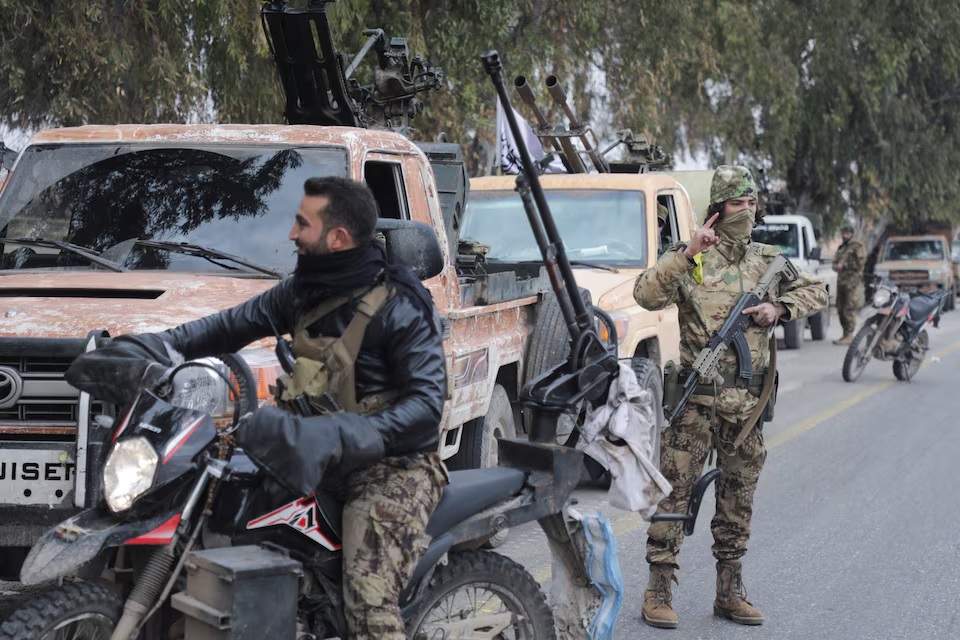
Rebel fighters claimed full control of the city of Homs on December 7, 2024. Photo: Reuters
Will the collapse come soon?
The fall of Homs and the threat to the capital now pose an existential threat to the Assad family era, which has ruled Syria for five decades, and to its main regional ally Iran. Syria is sandwiched between Israel and Iran, two of the region’s biggest rivals.
The most powerful rebel leader, Abu Mohammed al-Golani, declared that the rebels were on a journey to take over the entire country and that the Assad regime was "coming to an end".
The Assad regime could be on the brink of collapse, according to unnamed foreign officials who spoke to Reuters. One US official put the timeframe at five to 10 days, while another said Assad could be toppled within the next week.
The capture of Homs, a key crossroads between the capital and the Mediterranean, essentially cuts Damascus off from the coastal stronghold of Mr Assad’s Alawite sect, as well as from Russia’s air and naval bases.
X
Chaos in Syria after rebels advance close to capital Damascus (source: AJ)
Syrian army and security commanders left Homs on Saturday by helicopter for the coast while a large military convoy withdrew by road, a senior army officer said. Rebels said they were advancing on the city center.
Locals said thousands of people poured into the streets to celebrate. Homs residents and rebels said rebels had taken over the central prison and were freeing thousands of prisoners. Residents said state security and intelligence officers had evacuated their offices after burning papers.
Rebels said within 24 hours they had captured almost the entire southwest and had advanced to within 30 kilometers of Damascus as government forces withdrew.
Underscoring the potential for rebellion in the capital, protesters took to the streets in several Damascus suburbs, tearing down posters of Assad and destroying statues of his father, former President Hafez al-Assad, without opposition from the army or police. Some of those who took part were soldiers in civilian clothes and had defected.
However, state news agencies reported that Mr Assad remained in Damascus and the military said it was building up forces around the capital and south.
Reaction from all sides
The speed with which events unfolded has stunned Arab states and raised fears of a new wave of instability in the region.
Qatar, Saudi Arabia, Jordan, Egypt, Iraq, Iran, Turkey and Russia issued a joint statement calling the crisis a dangerous development and calling for a political solution. But there was no sign they had agreed on any specific steps, with the situation inside Syria changing by the hour.
The latest civil war map shows that the Syrian government army has lost a lot of control compared to before. Graphic photo: AJ
Mr. Assad has long relied on allies to quell the rebels. Russian warplanes have carried out bombing raids while Iran has sent allied forces including Lebanon’s Hezbollah and Iraqi militias to reinforce the Syrian army and attack rebel strongholds.
But Syria’s allies have their own problems. Russia has been focused on the war in Ukraine since 2022, and Hezbollah has been completely weakened by Israeli attacks. Iran has also fought major battles with Israel in the past year.
Russia has supported Syrian government forces with heavy air strikes, but that seems to be all it can do. Iran is still considering sending troops to Syria, and Hezbollah and Iraqi militias have not been of much help to the Assad regime.
Russian Foreign Minister Sergey Lavrov said he and his Iranian and Turkish counterparts were calling for a “cessation of hostilities” in Syria.
Speaking to Al Jazeera at the Doha Forum in the Qatari capital on Saturday, Lavrov said Russia, Iran and Türkiye expressed support for “dialogue between the government and the opposition” in Syria.
Western countries have also reacted to the new situation in Syria. President-elect Donald Trump has said the US should not get involved in the war and should “let it run its course”. The UK has warned the Assad regime that any use of chemical weapons is a red line and will be met with “appropriate action”.
Hoang Anh (according to AJ, Reuters)
Source: https://www.congluan.vn/chinh-quyen-syria-tren-da-sup-do-khi-mat-tiep-homs-quan-noi-day-dang-tien-ve-thu-do-post324614.html


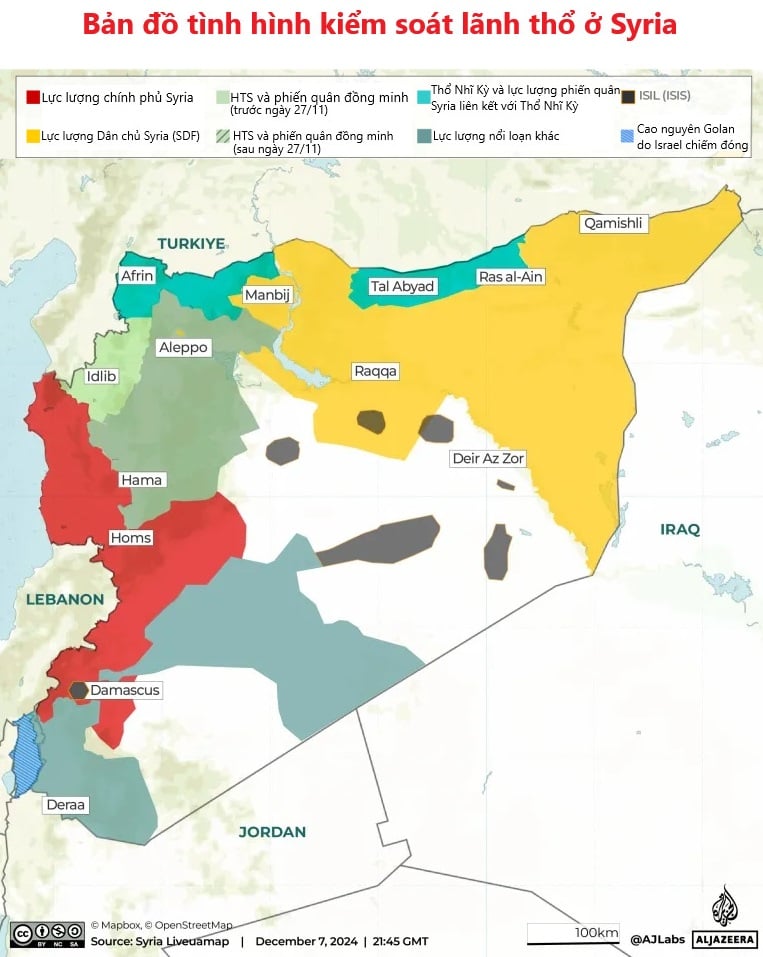
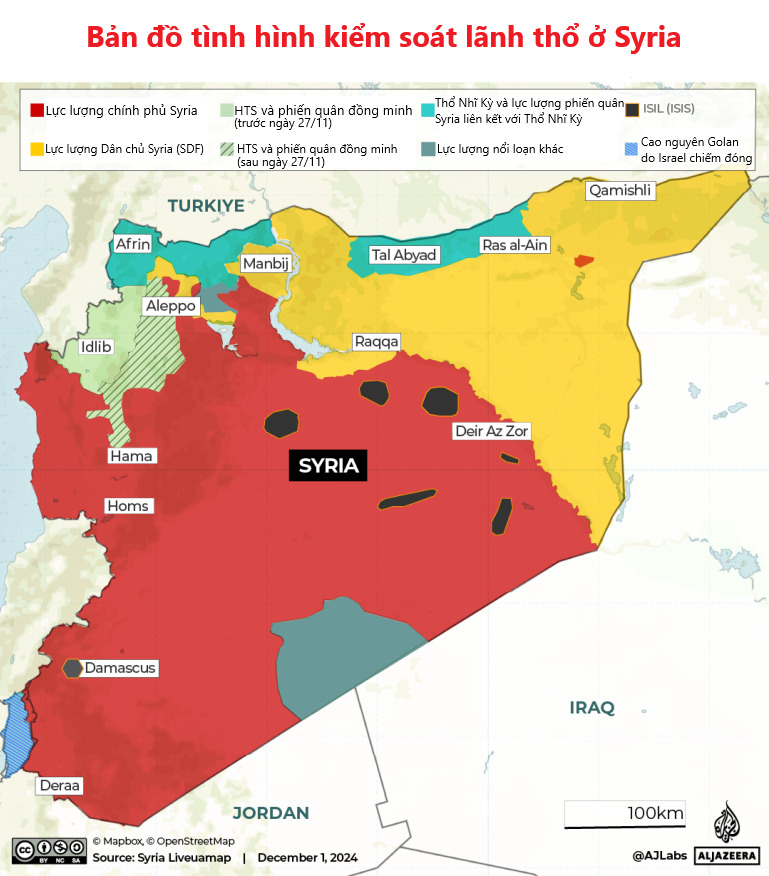
![[Photo] More than 17,000 candidates participate in the 2025 SPT Competency Assessment Test of Hanoi National University of Education](https://vphoto.vietnam.vn/thumb/1200x675/vietnam/resource/IMAGE/2025/5/17/e538d9a1636c407cbb211b314e6303fd)
![[Photo] Prime Minister Pham Minh Chinh chairs meeting on science and technology development](https://vphoto.vietnam.vn/thumb/1200x675/vietnam/resource/IMAGE/2025/5/17/ae80dd74c384439789b12013c738a045)


![[Photo] Readers line up to visit the photo exhibition and receive a special publication commemorating the 135th birthday of President Ho Chi Minh at Nhan Dan Newspaper](https://vphoto.vietnam.vn/thumb/1200x675/vietnam/resource/IMAGE/2025/5/17/85b3197fc6bd43e6a9ee4db15101005b)




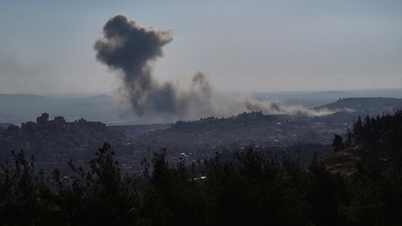
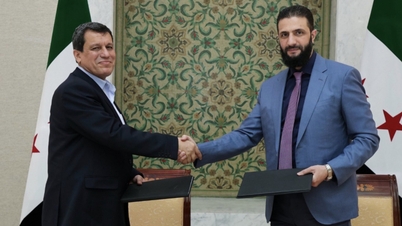
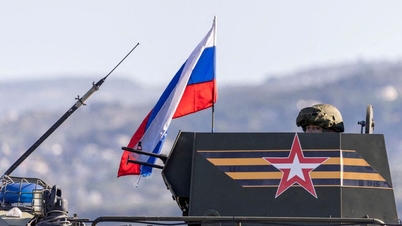
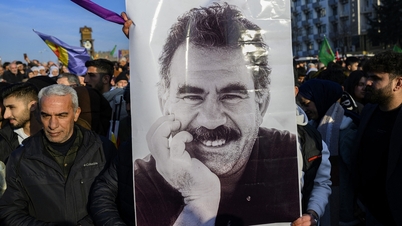


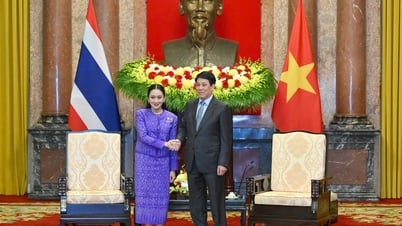


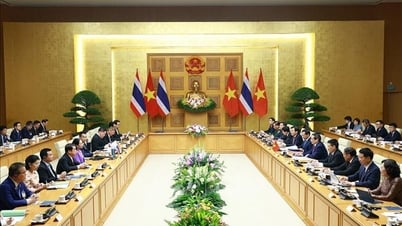














![[Photo] Nearly 3,000 students moved by stories about soldiers](https://vphoto.vietnam.vn/thumb/1200x675/vietnam/resource/IMAGE/2025/5/17/21da57c8241e42438b423eaa37215e0e)







































































Comment (0)